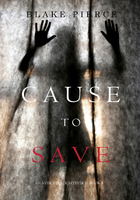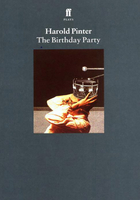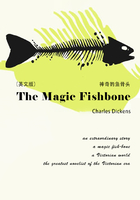WARREN BUFFETT INVESTOR
Up until the age of twenty, I was absolutely unable to speak in public. Just the thought of it made me physically ill. I would literally throw up. I selected courses in college where I didn't have to stand up in front of the class, and I arranged my life so that I would never find myself in front of a crowd. If I somehow did, I could hardly say my own name. I'm not sure what led to this problem, but it was there in a big way.
When I was at Columbia Business School, I saw an ad in the paper for a Dale Carnegie public-speaking course and figured it would serve me well. I went to Midtown, signed up, and gave them a check. But after I left, I swiftly stopped payment. I just couldn't do it. I was that terrified. I returned to Omaha after graduating and got a job as a salesman of securities. I knew that I had to be able to speak in front of people. So again, I saw an ad in the paper and went down to sign up; but this time I handed the instructor one hundred dollars in cash. I knew if I gave him the cash I'd show up. And I did.
There were about thirty other people in the class and we all had trouble saying our own names. We met once a week for a dozen or so weeks. They would give us different types of speeches to practice and taught us psychological tricks to overcome our fears. There was that communal feeling that we were all in the same boat and really helped one another get through the class. As soon as the course was over, I went to the University of Omaha and said, "I want to start teaching." I knew that if I did not speak in front of people quickly I would lapse back to where I'd started. I just kept doing it, and now you can't stop me from talking!
The impact that class had on my life was huge. In fact, I don't have my diploma from the University of Nebraska hanging on my office wall, and I don't have my diploma from Columbia up there either—but I do have my Dale Carnegie graduation certificate proudly displayed. That $100 course gave me the most important degree I have. It's certainly had the biggest impact in terms of my subsequent success.
In graduate school you learn all this complicated stuff, but what's really essential is being able to get others to follow your ideas. If you're a salesperson, you want people to follow your advice. If you're a management leader, you want them to follow you in business. Whatever you do, good communication skills are incredibly important and something that almost anybody can improve upon, both in writing and speaking. A relatively modest improvement can make a major difference in your future earning power, as well as in many other aspects of your life. In my case, I proposed to my wife during the time I was taking the public-speaking course. Who knows, but maybe if I had been talking in my voice of six months earlier I wouldn't have persuaded her to say yes. There are all kinds of good things that come out of sound communication skills.
One of the best things you can do in life is to surround yourself with people who are better than you are. High-grade people. You will end up behaving more like them, and they, in turn, will get it back from you. It's like a planetary system. If you hang around with people who behave worse than you, pretty soon you'll start being pulled in that direction. That's just the way it seems to work. Who you choose to associate with matters.
It's also imperative to select the right heroes. I have always been lucky in that respect. The people you look up to will form your vision of how you want to be in later life. I've had a number of terrific heroes who have never let me down. I've been able to pick up all sorts of valuable things from them.
My first hero was my dad. I grew up with this incredible love and admiration for him. I wanted to be like him. He gave me more good advice than anybody, and he was enormously helpful and important to me in all kinds of ways. He taught me that what's on your inner scorecard is more important than your outer scorecard. A lot of people are concerned with what the world will think about this or that instead of what they themselves think about it. If you are comfortable with your inner scorecard, you are going to have a pretty gratifying life. The people who strive too much for the outer scorecard sometimes find that it's a little hollow when they get through. My father died forty-six years ago. I have a large portrait of him on my office wall, and I still wonder how he would feel about anything I do.
The most important thing that ever happened to me was marrying Susie, another hero of mine. She had a terrific impact on me. In terms of living a happy life, it was night and day. I was not well-adjusted prior to meeting her. The biggest obstacle I had was a personality that hadn't fully developed, and that's a pretty big obstacle! I did not have the right social habits and wasn't very sensitive to how other people thought. I don't mean that I was completely in the other direction. I got along fine with a lot of people, but my social abilities lagged behind my intellectual ones. There was a lot of catching up to do, and it didn't happen overnight. It was as if Susie had a little watering can. She poured water on me and, after a long enough time, flowers bloomed where weeds used to grow. She took care of both the outer and inner me. I needed that. If not for Susie, I think I would probably have gone through life like many people do. I would have made a lot of money—it isn't like I needed help in that respect—and maybe I would have even become well-known, but I don't think I would have been happy. I would have been a mess.
You have lived a successful life if, as you grow older, the people who you hope love you actually do. I have never known anyone who does not feel like a success when they have gotten close to my age and have a lot of people who love them. I know enormously wealthy individuals who have dinners held in their honor, hospital wings named after them, and all that sort of thing, but the truth is that no one thinks much of them. I have to believe that at some point they realize it, and everything gets quite empty after that.
Benjamin Graham, my old boss and mentor, was another hero. He was a genius. I took a job with him when I was getting started and never even asked what the salary was going to be (I found that out at the end of the month when I got my paycheck). Try to work for whomever you admire most. It won't necessarily be the job that you'll have ten years later, but you'll have the opportunity to pick up so much as you go along. You don't want to take a job just for the money, and you should never work for people who make your stomach churn or who keep you up at night. If you are in a situation like that, think about changing it. And make sure you follow your passion—whatever turns you on. You want to be excited when you get out of bed in the morning. I tap dance to work every day, and I work with people I think are terrific.
When Ben was about twelve years old, he determined that it would be best to go through life with people liking and admiring him. He came to this conclusion not only because of how it would make him feel but also because it would make getting people to accept his ideas easier. So he sat down and wrote a list of the positive qualities in the people he looked up to. He then wrote a list of the negative qualities in the people who turned him off. When Ben reviewed these two lists, he realized that none of the attractive characteristics were impossible for him to obtain, and none of the negative ones were impossible for him to reject. They were qualities of behavior and character, not things like the ability to kick a football sixty yards or jump seven feet in the air. So Ben consciously decided to become the type of person he admired.
Qualities of good character and integrity make an enormous difference in achieving success. I urge students to conduct various forms of Ben's exercise. Most behavior is habitual. They say the chains of habit are too light to be felt until they are too heavy to be broken. There's no question about it. I see older people entrapped by self-destructive behavior patterns all the time. Bad habits are hard to kick, but good habits are too. So why not decide to have good habits? And form them as soon as you can. When you get to be my age, it's a lot tougher to do.
My good friend and hero, Tom Murphy, had an incredible generosity of spirit. He would do five things for you without thinking about whether you did something for him. After he was done with those five things, he'd be thinking about how to do the sixth. He was also an enormously able person in business and was kind of effortless about it. He didn't have to shout or scream or anything like that. He did everything in a very relaxed manner. Forty years ago, Tom gave me one of the best pieces of advice I've ever received. He said, "Warren, you can always tell someone to go to hell tomorrow." It's such an easy way of putting it. You haven't missed the opportunity. Just forget about it for a day. If you feel the same way tomorrow, tell them then—but don't spout off in a moment of anger.
My brain is not a general-purpose brain that works marvelously in all situations. There are all sorts of things that I'm no good at. My son can do things with music that I couldn't do in a million years. I can't play football well; I never could. I can't play chess like other people can. But my mind does work well in terms of evaluating businesses. I have this one little skill, and I was dropped into a society where it's paid off in a huge, huge way. That being said, there are still all kinds of investment opportunities I'm not able to comprehend. I understand some kinds of simple businesses. I can't understand complicated ones. Coca-Cola, for example, isn't very complicated. It's a durable product and the appeal is universal. I try to find businesses I can grasp, where I like the people running them and think the price makes sense in relation to the future economics. I believe very strongly in operating within what I call my "circle of competence." The most important thing in terms of your circle of competence is not how large it is but how well you define the perimeter. If you know where your edges are, you are way better off than somebody who has a circle five times as large but is very fuzzy about the border. Knowing what to leave out is as important as knowing what to focus on. Tom Watson, the founder of IBM, put it best. He said, "I'm no genius, but I'm smart in spots, and I stay around those spots."
An important quality in my field is emotional stability. You have to be able to think independently. If I take a poll on every investment decision I make, I'm going to be doing exactly what everyone else is, and I usually don't think much of that. As your company gets larger and you have larger groups making decisions, the decisions get more homogenized. I don't think you will ever get brilliant investment decisions out of a large committee. I must have a temperament that lets me think for myself. When I come to a conclusion, I can't be bothered if others disagree with me. That's tough for a lot of people, but as long as I feel that I know the facts, I'm okay with it.
In the investment or business world, you have to be able to pull the trigger when you have a good idea and you've got to be willing to do it big. I usually don't have any troubles in that department. My personality goes down that line. But I've still made a few major mistakes of omission. There have been things that I've known enough about but either didn't participate in or did on a small scale. I was sucking my thumb, basically, instead of writing checks. There is no place that lists "missed opportunities," but I have passed up some big ones.
I have also made some bad investments. There is no question that you are going to make mistakes in life. I've made a lot, and I'm going to make more. You just have to make sure that your blunders are never fatal, and you don't want to make them on the really big decisions. For example, choosing the person you marry. I may try to minimize my errors, but I'm not one to dwell on them. It isn't worth it. You have to put your mistakes behind you and not look back. Tomorrow is another day. Just go on to the next thing and strive to do your best.
It's important to realize that others are going to make mistakes too. There is no way that anyone's going to make a lot of business decisions without messing up on occasion so I have to decide if the people working for me know what they are doing overall. I'm not big on blame and, by other people's standards, I'm probably quite tolerant of our managers' mistakes.
The triumphs in life are triumphs because you know that not everything is going to be one. If you played golf and got a hole in one on every hole, you'd get bored. Part of the fun is hitting one into the woods and then getting a great recovery shot. And sometimes you don't get great recovery shots. To me, making money is an interesting game. The reason I continue is similar to why top golfers keep playing. They're not doing it for the money; it's for the love of the sport. There are a lot of people out there doing what I do, so it's exciting for me to be competing and doing well.
WARREN'S PEARLS
Toward the end of college, I fixed my ambitions on attending Harvard Business School. I was almost certain that they would accept me. On the day of my big interview, I woke before dawn and caught a ten-hour train to Chicago. I then switched to a little inner-urban train—so it was another hour up to meet the alumnus who was interviewing me. We spoke for about ten minutes, he assessed my capabilities, and he turned me down on the spot. They didn't even send me a letter later on; it was crushing. My dad had always had these high expectations for me, so on my ride home I had about eleven hours to think about the fact that he was going to be disappointed. I felt terrible; it was that feeling of dread. But almost immediately I started investigating other schools and discovered that Benjamin Graham, whose book I had recently read and loved, was teaching at Columbia. I ended up being accepted by Columbia, Graham became a major influence in my life, and the rest is history. It's been my general experience that things that seem disastrous at the time usually do work out for the best. My rejection from Harvard is certainly a dramatic illustration of this.
Reputation is very important. I ask the managers of my companies to judge every action that they take not just by legal standards (which, of course, is the first test) but also by what I call the "newspaper test." How would they feel about every given action if they knew it would show up the next day in their local paper, written by a smart but kind of unfriendly reporter and read by their families, friends, and neighbors? If it passes that test, it's okay. If anything is close to the line, it's out.
Most people go through life using up a very, very small part of their potential. You could have a three-hundred-horsepower motor and get three hundred horsepower out of it or you can get a lot less. The people who I see function well are not the ones with the biggest "motors," but the ones with the most efficient ones.
Here's a message that I think is very important to get across to younger people. I express it to them like this: "Every fifteen-year-old boy and most fifteen-year-old girls are constantly thinking, When do I get my first car and what will it be? Let's say that I offer to buy you the car of your dreams. You can pick out any car that you want, and when you get out of class this afternoon, that car will be waiting for you at home. There's just one catch … It's the only car you're ever going to get in your entire life. Now, knowing that, how are you going to treat that car? You're probably going to read the owner's manual four times before you drive it; you're going to keep it in the garage, protect it at all times, change the oil twice as often as necessary. If there's the least little bit of rust, you're going to get that fixed immediately so it doesn't spread—because you know it has to last you as long as you live. Here's the thing, that's exactly the position you are in concerning your mind and body. You have only one mind and one body for the rest of your life. If you aren't taking care of them when you're sixteen or seventeen, it's like leaving that car out in hailstorms and letting rust eat away at it. If you don't take care of your mind and body now, by the time you are forty or fifty you'll be like a car that can't go anywhere. So isn't it just as important to take care of your mind and body as it is to take care of that car?" They seem to get that.















